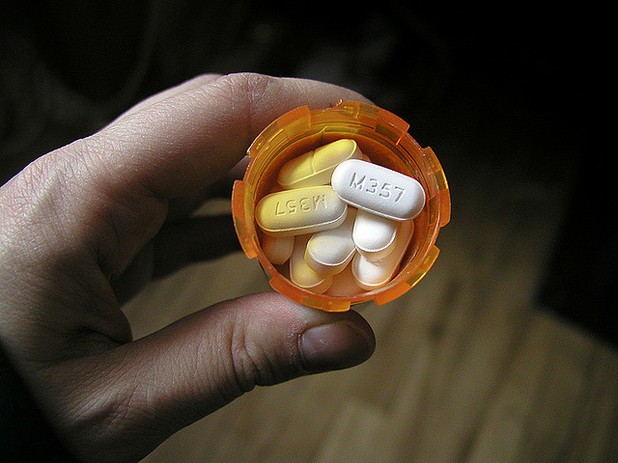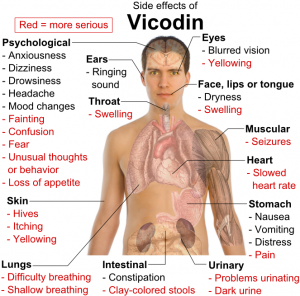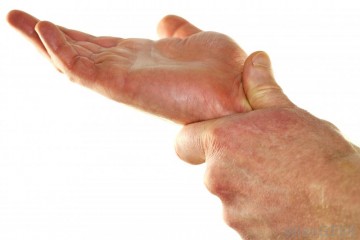Medical Marijuana, Opioids and a Deeply Confused Public

February 4, 2013
Medical marijuana is mostly prescribed for pain in the 18 states and District of Columbia that allow it. Yet it continues to provoke adolescent snickers and inevitable bong jokes.
And addiction to opioid painkillers is anchored in concern about its abuse leading to addiction.
Common to both is public fixation on the illicit and the seamy rather than the humane and the responsible.
Opioid addiction is a serious concern. But it pales in contrast with the potentially toxic consequences for the millions who take opioids for chronic pain with no hint of abuse. Which suggests we’re more concerned as a society that someone may be getting high from medical marijuana than someone may be needlessly dying from overuse of opioid medications like Vicodin, Oxycontin and Percocet.
Opioid prescribing was originally limited to acute pain – generally for cancer and post-surgical patients. Their use has expanded over the years, however, to the much larger population of chronic pain patients (see this recent post on “Understanding Chronic Pain and How Best To Manage It“). According to the IMS Institute for Healthcare Informatics, Vicodin is by far the single best-selling drug in America with over 136 million prescriptions filled in 2011.
The adverse effects of these potent drugs multiply, of course, the longer they’re used. This is why they were initially prescribed only for short-term episodes of acute pain.
There’s also evidence that opioids, like all medications, lose their effectiveness over time. This means their risk-to-benefit ratio quickly turns against patients taking them for chronic pain.
As a result, it also increases doctors’ risk of of potential malpractice lawsuits. You’d think a profession as obsessed with legal liability as America’s medical profession would be more cautious about prescribing these dangerous medications. As discussed in Our Healthcare Sucks, very often the opposite is the case.
Granted, many physicians feel pressured to provide relief to patients in chronic pain that’s often acute. It’s a real conundrum in medical practice today. Patients with one or more chronic medical conditions account for 75% of our healthcare spending in America. It’s no surprise the chronic pain that often accompanies these conditions has also mushroomed. Pain is the primary reason for doctors’ office visits.
But the Hippocratic Oath doctors take upon becoming doctors clarifies how to reconcile these often competing priorities in patient care. “First, do no harm” is pretty clear and concise advice.
What Would Hippocrates Say?
 Opioids have proven to cause plenty of harm, as this illustration of Vicodin’s effects confirms. The ones it omits are addiction and overdose.
Opioids have proven to cause plenty of harm, as this illustration of Vicodin’s effects confirms. The ones it omits are addiction and overdose.
A recent report found that opioid overdoses in New York City increased seven-fold over a sixteen year period.
And despite urban stereotypes, this wasn’t a problem for just racial minorities. In fact, it was mostly a problem among Caucasians. From the report:
“Whites were much more likely to overdose on analgesics than blacks or Hispanics…the fatality rate among white males was almost two times higher than the rate among Latinos and three times higher than the rate among blacks…
“Deaths were mostly concentrated in neighborhoods with…lower-than-average rates of poverty.”
Nationally, accidental overdoses from prescription opioid painkillers account for almost 2 of every 5 accidental poisoning deaths in the U.S. This has more than doubled since the year 2000, representing over 24,000 deaths annually by 2006.
Deaths from marijuana overdose? Zero.
It gets worse. Studies in animals have confirmed earlier evidence that morphine and other opiate-based painkillers may promote the spread of cancer cells.
The evidence indicating cause for concern was sufficient in 2012 to cause some anesthesiologists to reassess their use of opioids in managing cancer-related treatments and post-surgical pain. To quote from a report on the University of Chicago Medicine website:
“In a commentary in the journal (Anesthesiology), (researchers) summarize results from multiple studies to argue that opioids…appear to have a significant and direct proliferative effect in cancer cells aside from their effect suppressing immunity (emphasis added).”
If anesthesiologists – the medical experts in pain management – are sufficiently concerned to reassess their use of opioids for cancer and post-surgical pain management, the rest of us shouldn’t be too quick to disregard it. In fact, you’d think the rest of the medical profession might pay it more heed.
It’s rather a sick irony that the drugs many patients take for cancer pain may be promoting the spread of more cancer in their bodies.
Don’t Bogart That Painkiller!
But what of medical marijuana – another medication prescribed for pain relief? Isn’t medical marijuana prone to abuse as well and doesn’t it cause mortality risk with chronic use, too?
Well, no and no.
Of course, any substance can be abused by someone intent on doing so, including perfectly legal ones like alcohol and cigarettes. Medical marijuana’s profile for abuse, however, is relatively low, especially compared to alcohol and cigarettes – and opioids.
When I ran a drug rehab program back in the day, we used to laugh at the public perception that marijuana was a “gateway drug” – a perception that persists decades later.
Of course, it can turn out to be such for the very young, but no one’s seriously advocating that it be available to them – except perhaps as medical marijuana for medical treatment purposes.
The facts simply don’t support the public perceptions. We ought to be really worried about the legal opioid drugs that young people are actually overdosing on and not those that absolutely no one overdoses on.
And here’s where it’s important to distinguish between legalizing medical marijuana and marijuana for recreational use. Because this public perception about marijuana easily spills over into the medial marijuana debate – where the emphasis is too much on the “marijuana” and too little on the “medical”.
Eyeing the Wrong Drugs
Consider it objectively: while opioid overdoses increased by 700% in New York City, heroin overdoses actually declined. Yet American politicians are less concerned about this “new smack” – or “honky heroin” – than they are about comparatively harmless medical marijuana with virtually no mortality effect.
What does it say about our culture when the most dangerous drugs that kill more young Americans than heroin and cocaine combined are also our best-selling medications?
Not only are we not making it more difficult to prescribe these best-selling and most dangerous opioid medications, the FDA is currently considering approval of an even stronger version of Vicodin that’s 100% hydrocodone (Vicodin consists of hydrocodone and acetaminophen found in Tylenol).
And a majority of Americans surveyed favor keeping the current loose restrictions we now have on Vicodin in America.
Of course, a much greater majority favor legalizing medical marijuana and their opinion is routinely ignored.
We’ve been dragging our feet for decades on legalizing medical marijuana as a far safer alternative that would help at least some of those now taking far more dangerous opioid medications. Actually, it’s now much worse than merely dragging our feet, as made clear in this article in The Huffington Post. The politics of medical marijuana and over-zealous federal prosecutors intent on keeping it a criminal activity read like a bad remake of Reefer Madness.
All-in-all, it’s a fine mess we’ve gotten ourselves into – and there’s no ready solution in sight.
Misguided prosecutors would perform a greater public service by prosecuting real crimes and real criminals. Instead, they go after the easy pickings of those caught in the legal limbo created by conflicts between state and federal laws governing medical marijuana. These are people acting in compliance with the laws of their states. Yet federal prosecutors manage to muster righteous indignation like they’d busted an international drug cartel.
And for its part, the FDA would perform a greater public service by loosening restrictions on medical marijuana and tightening them on far more dangerous opioid medications.
Then again, when has public service – or common sense – ever guided public policy in American politics?
Source: http://ourhealthcaresucks.com/health-care/medical-marijuana-vs-opioids/





No Comment